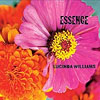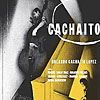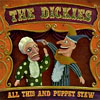
This Week: Lucinda's essentially good follow-up, an up-to-date Buena Vista Social Club, and The Dickies' return from reform school.
Lucinda Williams

Essence (Lost Highway)
I'm not sure Lucinda Williams' last album, 1999's Car Wheels on a Gravel Road, was quite the masterpiece people make it out to be. It was a little formalized for me; her legendary fussiness in the studio can be sterilizing. But it was a terrific release nonetheless, a collection of sterling songs that hold up both individually and as a mosaic portrait of a woman facing the loves and losses of half a lifetime.
Essence is a little looser, which is both good and bad. At its best—like the lilting opening track "Lonely Girls" and the shuffling blues of "Get Right With God"—it feels more intimate than Car Wheels. But the looseness extends to the songwriting itself. Some of the songs feel thrown together from odds and ends, a verse here, a chorus there, without the coherence and precision that typically mark Williams' writing. "Steal Your Love," "Out of Touch" and "Reason to Cry" revisit familiar territory, and they feel a little stale.
On the other hand, the title track is another of those honey-dew seduction numbers she specializes in ("Baby, sweet baby, kiss me hard"), knowingly sexy and all the more sexy for knowing it. "Bus to Baton Rouge" is an unsentimental song about childhood, looking back with equal parts fondness and reproach. And "Blue," with its assertion of the right to despair, is one of the loveliest, saddest things she's ever written.
The production, by Williams, Charlie Sexton and Bo Ramsey, wisely spotlights Lucinda's raspy quaver, giving it plenty of room to breathe. But sometimes all that space borders on amorphousness; both "I Envy the Wind" and "Broken Butterflies" get their melodies bogged down in the mix. Its title notwithstanding, Essence feels more like an abstract of Williams than an extract.
—Jesse Fox Mayshark
Orlando "CachaÍto" Lopez

CachaÍto (Nonesuch)
Now that the Buena Vista Social Club has given the U.S. a taste for the music of Old Havana, get ready for something more up-to-date and even tastier. Bassist Orlando "Cachaito" Lopez has appeared on every BVSC recording, holding down the bottom-end in the background until now. But on his debut solo album, sexagenarian Lopez outstrips the Social Club's vinegary nostalgia by blending old and new sounds from Cuba, the Caribbean Rim, and beyond as if determined to prove single-handedly that Cuban music hasn't been frozen behind a blockade since the '60s.
Lopez comes from a family of more than 30 other bass players (including the legendary Israel "Cachao" Lopez), and his nimble chops and supernatural sync with the crack percussion section alone make CachaÍto a must-have for Cuban-music fans. But he doesn't settle for just another fiery jam session. Manuel Galb�n of the '60s group Los Zafiros drapes strands of shimmering, reverbed guitar across the tunes like a lost Huntington Beach surfer washed up in the Bay of Pigs, while organist Bigga Morrison and Nick Gold's dubwise production add subtle touches of Jamaican spice. DJ Dee Nasty helps teleport Lopez from Havana to the boogie-down Bronx for the slamming hip-hop track "CachaÍto in Laboratory," while "Tumbao No. 5 (Para Charlie Mingus)" finds the leader bringing Mingus' jazz classic "Haitian Fight Song" full circle to its spiritual home turf and swinging it hard. Though it may sound gimmicky, CachaÍto is anything but—poised, passionate, and simply stunning, it's a genuine modern diasporic masterpiece.
—Lee Gardner
The Dickies

All This and Puppet Stew (Fat Wreck Chords)
With around 25 years as a functioning unit, Los Angeles' The Dickies claim the dubious title of the longest running punk band in U.S. history. But then again, the band didn't really fit the punk cookie-cutter mold in the halcyon days of 1976-77, and they still don't today.
In a quarter of a century, The Dickies haven't strayed that far from the Banana Splits-with-a-buzzsaw sound of their first LP, The Incredible Shrinking Dickies. To their credit, they have toned down the grating, juvenile qualities of their earlier recordings in favor of a slightly more refined, ahem, mature pop sound.
Nonetheless, the band is still an acquired taste. You have to readjust your thinking just a hair to get used to lead vocalist/keyboardist Leonard Graves Phillips' adenoidal singing style. And the songs still sound like children's television themes on crack. But sometimes—for me anyway—a lost weekend of hitting the base pipe with Willie Wonka is just what Dr. Dolittle ordered.
Ryan Greene's production of Puppet Stew is immaculate and loud. And when the band hits stride on tunes like, "Keep Watchin' The Skies," "Donut Man" and "My Pop The Cop," they just about can't be beat. When they're not too quirky or self-consciously clever, The Dickies deliver caffeinated pop confection that ranks up there with there with their UK counterparts, The Buzzcocks.
It warms my heart to see The Dickies still kicking out the jams, and the new album is as good or better than anything the band has ever recorded. And we're not talking about warm/fuzzy nostalgia for "back in the day," either. Like a dimwitted cousin who just got out of reform school for the fourth time, Puppet Stew is immediately likable—heck, loveable even. Highly recommended.
—John Sewell

June 14, 2001 * Vol. 11, No. 24
© 2001 Metro Pulse
|